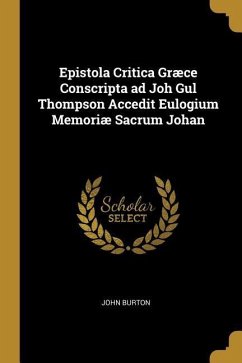
Displaced Pride

PAYBACK Punkte
8 °P sammeln!
Cynicism is neither a new nor unfamiliar attitudinal expression amongst cadets at the Air Force Academy. While its roots lie with a succinct society of satirists in Ancient Greece, the modern cynic conjures negative connotations amongst superiors and organizations alike. Although the attitude is quickly associated with, and attributed to, negative reflections, few definitions completely agree as to what cynicism actually is. The problems associated with defining cynicism manifest in an inability to curb its effects. Particularly troubling is the expression of derogatory attitudes in young offi...
Cynicism is neither a new nor unfamiliar attitudinal expression amongst cadets at the Air Force Academy. While its roots lie with a succinct society of satirists in Ancient Greece, the modern cynic conjures negative connotations amongst superiors and organizations alike. Although the attitude is quickly associated with, and attributed to, negative reflections, few definitions completely agree as to what cynicism actually is. The problems associated with defining cynicism manifest in an inability to curb its effects. Particularly troubling is the expression of derogatory attitudes in young officers attributed to a budding and rampant sense of cynicism. In 2008, the Commandant of the Aerospace Basic Course at Maxwell Air Force Base commented that the displays of unprofessional and troubling attitudes by graduates of the Air Force Academy led him to rank USAFA graduates professionally behind both ROTC and OTS graduates. In a statement that should shock all graduates of the Academy, he cornered a former USAFA administrator with the pointed barb, "Just what the hell are you producing up there?" This work has been selected by scholars as being culturally important, and is part of the knowledge base of civilization as we know it. This work was reproduced from the original artifact, and remains as true to the original work as possible. Therefore, you will see the original copyright references, library stamps (as most of these works have been housed in our most important libraries around the world), and other notations in the work. This work is in the public domain in the United States of America, and possibly other nations. Within the United States, you may freely copy and distribute this work, as no entity (individual or corporate) has a copyright on the body of the work. As a reproduction of a historical artifact, this work may contain missing or blurred pages, poor pictures, errant marks, etc. Scholars believe, and we concur, that this work is important enough to be preserved, reproduced, and made generally available to the public. We appreciate your support of the preservation process, and thank you for being an important part of keeping this knowledge alive and relevant.









![A Genuine And Faithfull Account Of The Sufferings, Of W. Houlbrook. To Which Is Added, A Learned Speech Made By A Worthy Member Of Parliament [a.a. Cooper] Cover A Genuine And Faithfull Account Of The Sufferings, Of W. Houlbrook. To Which Is Added, A Learned Speech Made By A Worthy Member Of Parliament [a.a. Cooper]](https://bilder.buecher.de/produkte/56/56667/56667652n.jpg)


